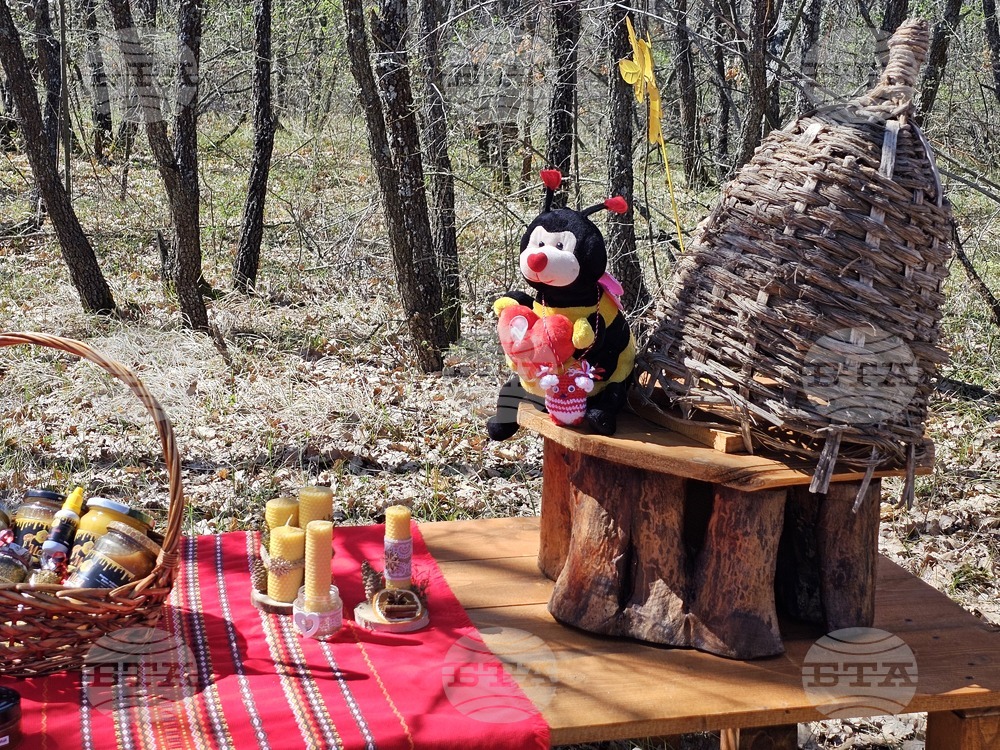site.btaBeekeepers in Tundzha Show Visitors How Honey is Made


Among the participants in the Guests of Tundzha initiative is the honey farm of Diana and Plamen at the foot of the Monastery Heights. Guests of the honey farm will be welcomed by the couple, who are lawyers by education but beekeepers by profession. The Guests of Tundzha initiative allows farms in the villages of Tundzha Municipality in Yambol Region to open their doors to visitors of all ages.
Even though Diana works as a lawyer and Plamen deals with logistics in a metallurgical enterprise, they decided to create the honey farm in 2013. Initially as a hobby, it later turned into a way of life close to nature, where they wanted to raise their two children, they say. For the last three years they have also been growing saffron near the village of Botevo. "We simply love nature, to rest, recharge our energy here, among the birds, the bees, the forest," said Diana.
"After we finished our education, we returned to our native Yambol. My wife and I started looking for something to do, but we wanted it to be something more of a family business," said Plamen. Diana noted that they started with five bee hives in the beginning and asked friends and acquaintances for tricks. "No one from our families has ever been involved in beekeeping, but it turned out to be quite interesting. It required a lot of reading at the beginning," she recalled.
They admit that they had great difficulties in the past years as well, especially in 2016, when a large part of their bees died. "We had reached 70 hives and then suddenly, in the spring, we found ourselves down to 20. It was a very big shock, but we started again", Diana said. The losses did not stop them, and now, they have the same number of hives again and even plan to increase them to 100-150. "We think that this number would be optimal for us at the moment, because our second child is still a baby," noted Diana.
In the last few years they have started to develop mobile beekeeping, they said. According to the season and flowering vegetation, the couple move their bee hives with platforms in search of different types of honey. "We look for mann honey, which is very difficult to extract and rarely appears, as well as acacia honey and lavender honey. At least five or six types of honey can be extracted by mobile beekeeping," said Plamen.
In addition to pure honey and bee pollen, the couple also produce cosmetic and drugstore products like creams, soaps and sprays with propolis tincture for the nose and throat. They add the saffron they grow to some of these products as well. "Bulgarian saffron has a very nice and pleasant aroma. Unfortunately, the herb is still not very well-known in our country", Diana said. The couple focus mainly on direct retail sales, but also participate in farm exhibitions. "Years ago, we sold wholesale, but now the prices are very low, it's just not worth it. Even though the season hasn't started yet, the price of honey is already known – below BGN 3 per kg, which is completely laughable," they said.
Diana and Plamen are looking forward to visitors and guests of the Guests of Tundzha initiative, especially children. The couple have prepared to tell and show them interesting facts about the life of bees, how beekeeping was born and how the honey from the bee hives arrives in the living room. "Before conventional beekeeping, all bees lived in hollows in trees and in holes in rocks. Here we have prepared such a tree stump for them, and here is a honeycomb that was in the hollow," noted Plamen. They have also prepared a beehive with windows so that the children can observe the bees, as well as a workshop, where they will create beeswax candles together. Children will be able to taste very fresh honey directly from the hives, the couple promised.
/DS/
news.modal.header
news.modal.text